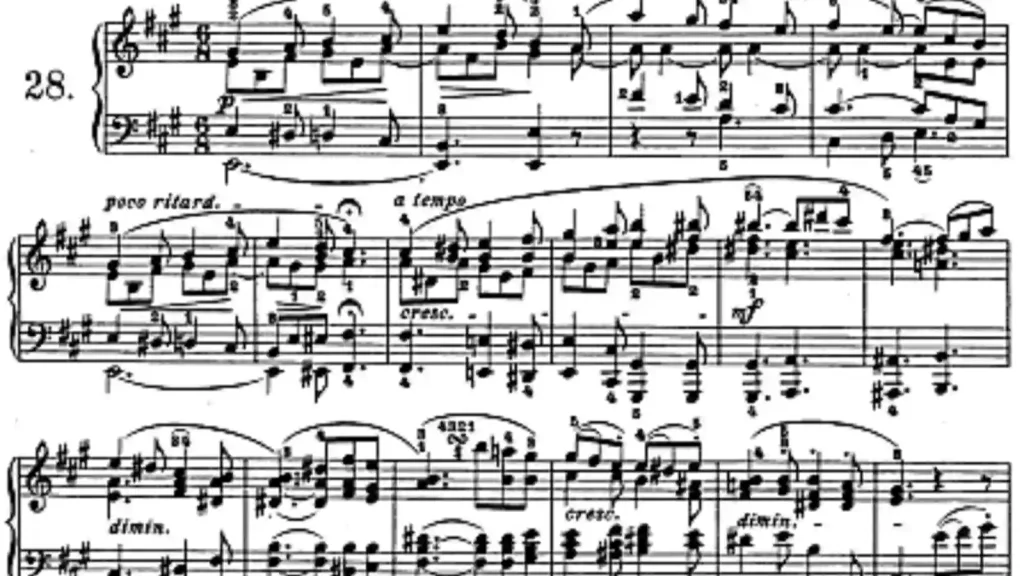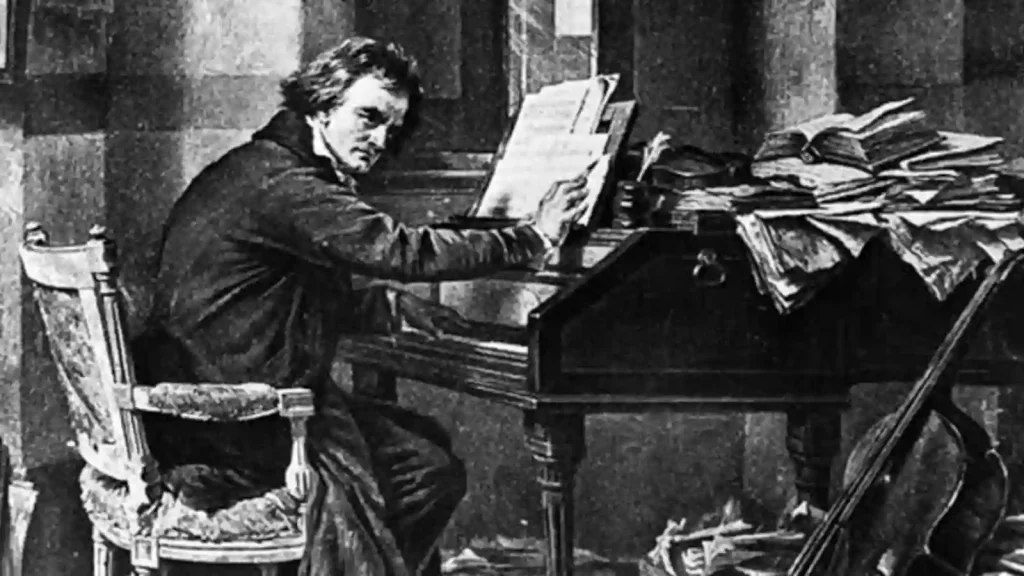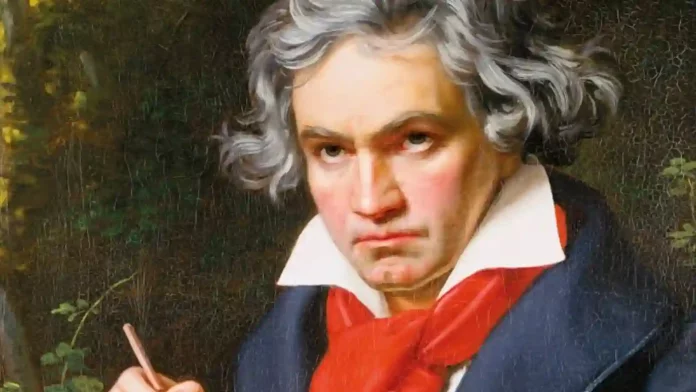The German composer, Ludwig van Beethoven is one of the greatest musicians of all time. The artist made music that had his raw emotions, parting away from the music his contemporaries made. When his peers made music for religious ceremonies and private functions, Beethoven made music for the public that adored him.
This musical genius was born in December 1770, in the city of Bonn of the Holy Roman Empire. Beethoven’s family did have musicians. His grandfather was a prosperous and famous musician in Bonn. His alcoholic and abusive father was also a mediocre court musician. As a child, Beethoven was under rigorous training that he received from his father. Here’s more about Beethoven, his eventful life, and his innovative music.
Read More: Top 10 Most Streamed Songs On Apple Music In 2022
What Is Ludwig van Beethoven’s Contribution To Music?

The early works of Beethoven were developed through the classical forms’ formal and structural terms. It was more influenced by the works of his predecessors, Mozart and Haydn. The composer, from the classical forms in the early stages, had a transition and then switched to compositions with more influence from the romantic era.
The creative genius has composed about 722 works, according to the British Library. These include 9 symphonies, 35 piano sonatas, and 16 string quartets. Beethoven used to conduct public and private concerts. Between 1785 and 1810, Beethoven undertook a series of five piano concerts, of which the first four, he himself premiered. In addition to this, Beethoven also taught piano to increase his income. His pupils came from notable aristocratic families.
Creativity evidently is one factor that can be seen in the surviving sketches of Beethoven’s compositions. These appeared chaotic with amendments and deletions. Chamber music is described to be another element that made Beethoven’s music enduring. His music was often described to be “transcendental notions of struggle, revolution, and the sublime”. Finally, the artist’s most famous compositions include Für Elise. Symphony No.5, Moonlight Sonata, and so on.
Read More: 2022 BET Soul Train Awards: List Of Winners
How Did He Die? Did He Go Deaf At The End Of His Life?

Beethoven went completely deaf by 44 or 45. But he started having difficulty with hearing by the age of 28, sometime in 1798. Even though he became deaf, the musician communicated with his colleagues, friends, and visitors through written notes.
Much is not known about the cause of Beethoven’s deafness. However many assume it to be lupus, heavy metal poisoning, syphilis, or typhus fever. Yet, under his unlikely circumstances, Beethoven composed music through his former experience, memory, and imagination.
Unlike others, the artist suffered from several ailments in his lifetime. He suffered from abdominal pain, rheumatic diseases, and even depression. He was also an alcoholic. Finally, his body gave up to pneumonia, which had probably developed into jaundice. He also had swollen feet and a failing liver.
Read More: How Did ‘We Cry Together’ By Kendrick Lamar And Taylour Paige Come About?






